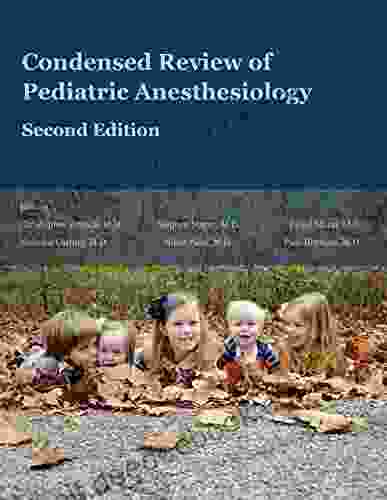The Berlin Rules and the German Way: Europe's Model for Reforming the Rules of Evidence

4.6 out of 5
| Language | : | English |
| File size | : | 851 KB |
| Text-to-Speech | : | Enabled |
| Screen Reader | : | Supported |
| Enhanced typesetting | : | Enabled |
| Word Wise | : | Enabled |
| Print length | : | 228 pages |
| X-Ray for textbooks | : | Enabled |
The Berlin Rules are a set of guidelines for reforming the rules of evidence in Europe. They were developed by a group of experts from 19 countries and were adopted by the Council of Europe in 2017. The Berlin Rules are based on the German approach to evidence, which emphasizes the importance of relevance, reliability, and fairness.
Relevance
Relevance is the first and most important factor in determining the admissibility of evidence. Evidence is only relevant if it has a logical connection to the issue being decided by the court. The Berlin Rules define relevance as "the logical connection between the evidence and the facts of the case".
The German approach to relevance is based on the theory of "conditional probability". This theory states that the value of evidence depends on the probability that the event the evidence tends to prove would not have occurred if the event that the evidence is offered to disprove had not occurred. In other words, the more likely it is that the evidence would have occurred even if the defendant had not committed the crime, the less relevant the evidence is.
The German approach to relevance is stricter than the approach taken in many other countries. In the United States, for example, evidence is generally admissible if it is relevant to any fact in issue. This means that even evidence that is only marginally relevant is often admitted. Under the Berlin Rules, however, evidence is only admissible if it is "directly relevant" to the issue being decided by the court.
Reliability
Reliability is the second most important factor in determining the admissibility of evidence. Evidence is only reliable if it is trustworthy. The Berlin Rules define reliability as "the trustworthiness of the evidence".
The German approach to reliability is based on the principle of "judicial scrutiny". This principle requires the court to carefully examine the evidence to determine whether it is trustworthy. The court will consider a number of factors in determining reliability, including:
- The source of the evidence
- The method by which the evidence was obtained
- The consistency of the evidence with other evidence
- The demeanor of the witness
The German approach to reliability is stricter than the approach taken in many other countries. In the United States, for example, evidence is generally admissible if it is "reliable". This means that even evidence that is only marginally reliable is often admitted. Under the Berlin Rules, however, evidence is only admissible if it is "highly reliable".
Fairness
Fairness is the third most important factor in determining the admissibility of evidence. Evidence is only fair if it is not unfairly prejudicial to the defendant. The Berlin Rules define fairness as "the just and equitable treatment of the parties".
The German approach to fairness is based on the principle of "balancing". This principle requires the court to weigh the probative value of the evidence against the potential for unfair prejudice. The court will consider a number of factors in determining fairness, including:
- The seriousness of the crime
- The strength of the evidence
- The potential for unfair prejudice
- The availability of other evidence
The German approach to fairness is stricter than the approach taken in many other countries. In the United States, for example, evidence is generally admissible if it is more probative than prejudicial. This means that even evidence that is unfairly prejudicial is often admitted. Under the Berlin Rules, however, evidence is only admissible if it is "fairly probative".
The Berlin Rules are a comprehensive and well-crafted set of guidelines for reforming the rules of evidence in Europe. They are based on the German approach to evidence, which emphasizes the importance of relevance, reliability, and fairness. The Berlin Rules are a valuable resource for judges, prosecutors, and defense attorneys who are working to improve the quality of justice in Europe.
4.6 out of 5
| Language | : | English |
| File size | : | 851 KB |
| Text-to-Speech | : | Enabled |
| Screen Reader | : | Supported |
| Enhanced typesetting | : | Enabled |
| Word Wise | : | Enabled |
| Print length | : | 228 pages |
| X-Ray for textbooks | : | Enabled |
Do you want to contribute by writing guest posts on this blog?
Please contact us and send us a resume of previous articles that you have written.
 Book
Book Chapter
Chapter Reader
Reader Library
Library Magazine
Magazine Newspaper
Newspaper Paragraph
Paragraph Bookmark
Bookmark Glossary
Glossary Bibliography
Bibliography Preface
Preface Synopsis
Synopsis Annotation
Annotation Footnote
Footnote Manuscript
Manuscript Scroll
Scroll Codex
Codex Classics
Classics Narrative
Narrative Autobiography
Autobiography Memoir
Memoir Dictionary
Dictionary Thesaurus
Thesaurus Narrator
Narrator Character
Character Librarian
Librarian Card Catalog
Card Catalog Study
Study Research
Research Reserve
Reserve Academic
Academic Journals
Journals Reading Room
Reading Room Rare Books
Rare Books Interlibrary
Interlibrary Study Group
Study Group Awards
Awards Reading List
Reading List Book Club
Book Club Theory
Theory Trisch Price
Trisch Price Robertson Davies
Robertson Davies Peter Goss
Peter Goss Peter Ross Range
Peter Ross Range Anne Dublin
Anne Dublin Anna Nicholas
Anna Nicholas Suzanne Hanchett
Suzanne Hanchett C Larene Hall
C Larene Hall Greg Pak
Greg Pak Francis X Shen
Francis X Shen Michael Hamburg
Michael Hamburg Rajmohan Gandhi
Rajmohan Gandhi Kate Sedley
Kate Sedley Paulo Cezar Da Rosa
Paulo Cezar Da Rosa Beverley Courtney
Beverley Courtney Catherine Ryan Hyde
Catherine Ryan Hyde Lizbeth Meredith
Lizbeth Meredith Karla Mcgray
Karla Mcgray Cynthia M Duncan
Cynthia M Duncan Marcelo S Perlin
Marcelo S Perlin
Light bulbAdvertise smarter! Our strategic ad space ensures maximum exposure. Reserve your spot today!

 Garrett BellBeijing In The Round: An All-Encompassing Exploration of the Majestic Chinese...
Garrett BellBeijing In The Round: An All-Encompassing Exploration of the Majestic Chinese...
 Floyd RichardsonScholastic of World Records 2024: Unraveling the World's Extraordinary Feats...
Floyd RichardsonScholastic of World Records 2024: Unraveling the World's Extraordinary Feats... Max TurnerFollow ·19k
Max TurnerFollow ·19k Carson BlairFollow ·17.1k
Carson BlairFollow ·17.1k Diego BlairFollow ·19.1k
Diego BlairFollow ·19.1k Harvey HughesFollow ·19.7k
Harvey HughesFollow ·19.7k Jaden CoxFollow ·11.4k
Jaden CoxFollow ·11.4k Tom HayesFollow ·11.4k
Tom HayesFollow ·11.4k Billy FosterFollow ·19.2k
Billy FosterFollow ·19.2k Art MitchellFollow ·9.2k
Art MitchellFollow ·9.2k

 Beau Carter
Beau CarterLater Political Writings: A Window into the Evolution of...
Political thought, like...

 Tyrone Powell
Tyrone PowellThe Essential Guide to Family School Partnerships:...
: The Importance of...

 Christian Barnes
Christian BarnesAdvancing Folkloristics: Conversations with Jesse...
Dr. Jesse Fivecoate is an...

 Jake Carter
Jake CarterHal Leonard DJ Method Connell Barrett: A Comprehensive...
Are you ready...

 John Updike
John UpdikeCondensed Review of Pediatric Anesthesiology Second...
Condensed Review of...

 Guillermo Blair
Guillermo BlairExploring the Complexities of Motherhood and Identity: A...
Elena Ferrante's "The Lost...
4.6 out of 5
| Language | : | English |
| File size | : | 851 KB |
| Text-to-Speech | : | Enabled |
| Screen Reader | : | Supported |
| Enhanced typesetting | : | Enabled |
| Word Wise | : | Enabled |
| Print length | : | 228 pages |
| X-Ray for textbooks | : | Enabled |








